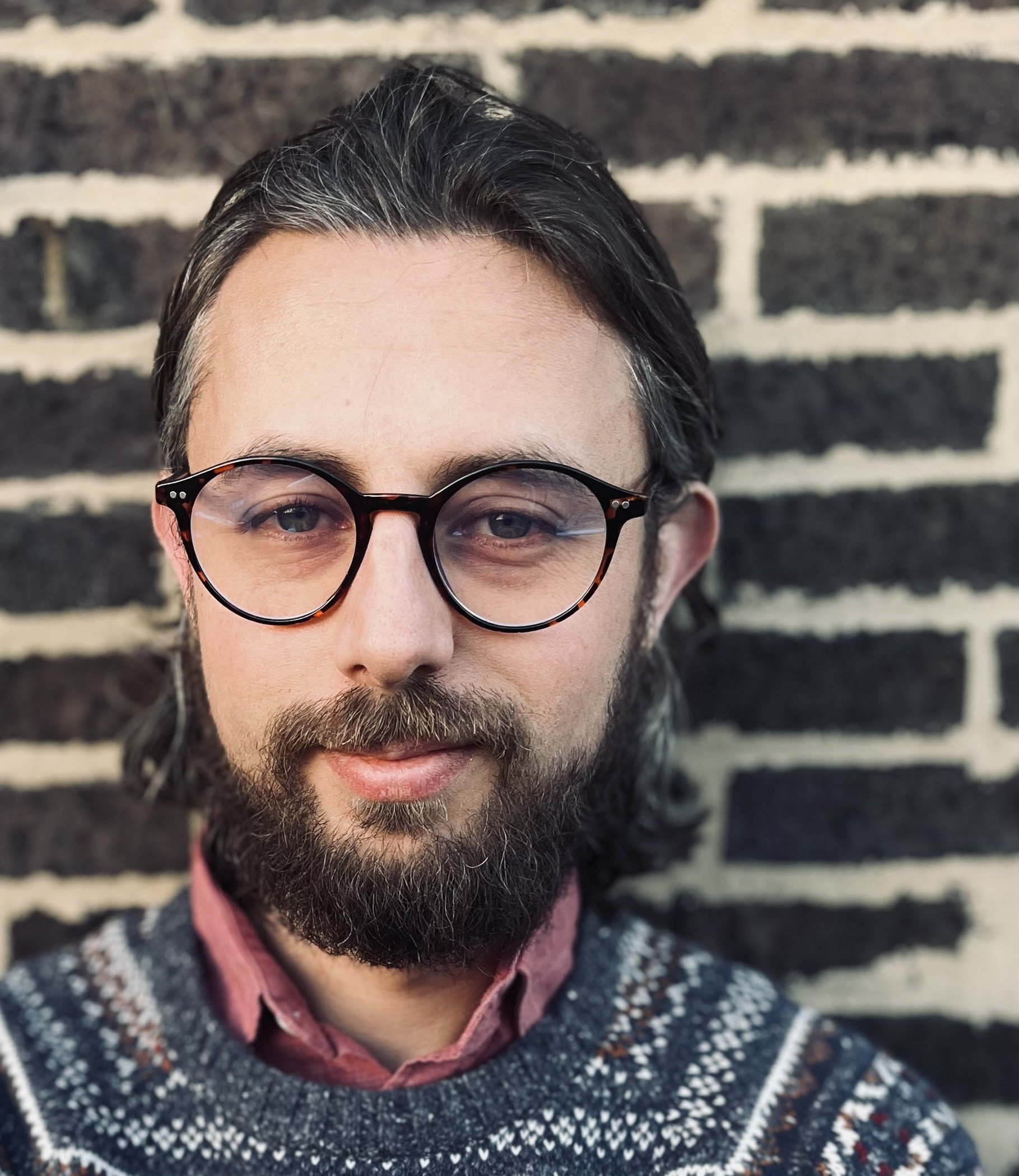Q&A With Sanctuary City director Esteban Arévalo Ibáñez
Photo by Wesley Hitt
Sanctuary City director Esteban Arévalo Ibáñez’s work was last seen on the TheatreSquared stage as director of last year’s musical Miss You Like Hell. His credits include American Side Efectos, by Debbie Baños (The New Coordinates); Sandusky, by Daniela Mauleón (Collaboraction); Dreamers, by Joseff Stevenson (Arc Theatre); Thoughts on Racism…by Sarah Illiatovich-Goldman (Encounter - Collaboraction); People’s History of The Block, by Kevin Coval (Collaboraction), Escape Velocity, by Debbie Baños (Chicago Theatre Marathon); and Thundersnow (American Theatre Company). He has a Spanish Major from Universidad de Salamanca and holds an MFA in Theatre Directing from the University of Arkansas.
Tell us about what grabbed you about Sanctuary City on first read — what inspired you, what motivated you, why did you think this was a great show for your talents?
Esteban Arévalo Ibáñez
Martyna Majok calls her play “a love letter to the unheard voices of the Dreamers.” We get to see how our characters suffer from decisions that were made by their parents who made very difficult decisions and ended up following the American Dream here. But that dream is not for every immigrant. Something that really moved me was how our characters, G and B, these teenagers, are stuck with no status, and living their lives in constant fear of being deported and separated from their families. And yet they constantly use humor to normalize what is happening to them. They face challenges together with a laugh, and take care of each other when things get harsh. It is in this kindness and empathy, where I found hope in this play. In how they create a home and a safe place for each other. And how much they are willing to give up in order to help each other.
For the most part, this play is a collection of memories from our characters. I have always loved working with plays that explore memories or dreams because they make us question whether what we see happened that way or not. Can we trust their memories? Why did they tell us their story like this? I love exploring how our characters remember something and how it felt to them. We are having tons of fun navigating these memories with the creative team and articulating the world our characters live in, or at least, how they remember it.
And last, on my first read I identified constantly with the dialogue of the play. It is written by an immigrant Polish author, MM, and it is spoken by bilingual characters who speak their own native languages, as well as English. I definitely see myself a lot when they say something that is not 100% grammatically correct in English. But in their minds, it just expresses their idea way better!
Both this show and Miss You Like Hell used theater to not only entertain, but to educate and, hopefully, open some hearts and minds. Do you think theater is an effective way to do that in general, and what, specifically, does Sanctuary City do particularly well in this arena?
It never ceases to amaze me how some people are still not aware of what has been happening with immigration here. And I really believe that theatre is, and has always been, the place to share ideas and stories; to have conversations and to give a voice to those who cannot speak out for themselves.
I think that is why MM’s plays are resonating so much in the country right now. She always refers to her plays as “hear me out plays”, because she brings the immigrant stories to the stage, and hopes people will meet her in the middle to listen, and by doing so become more empathetic. I guess, as long as we have people who don’t know about these realities, and the system remains unchanged, these plays will be very relevant. The end goal would be for them to become just a historical account of something long gone. But not yet!
What do you hope this production changes, moves, furthers, improves, enlightens, etc. in its audiences?
Ultimately, it’s about honoring the people who have suffered from a system designed to make them feel less than. To celebrate their fight, and to hopefully create empathy in those who are not aware of what is happening.
As for my personal hope? Some time after watching the show, as the title and lines of dialogue have been forgotten, if some moments of truth that sparked conversations live on in your memory, then I consider my dream come true!


